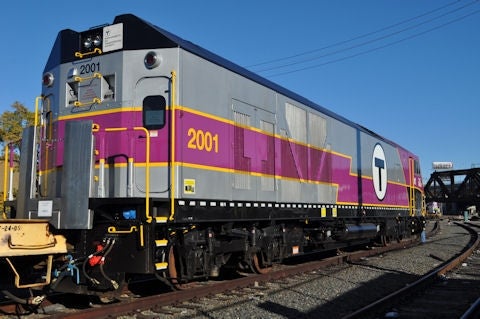The Baker administration is embarking on a long-awaited reassessment of the feasibility of an underground rail link connecting the North Station and South Station transportation hubs in Boston.
Such a link would help commuters across the area get from the city’s two major rail stations. Commuter trains from the Framingham-Worcester line currently stop at South Station.
State procurement officials on Wednesday made available a bid solication for the reassessment contract, listing it as a professional engineering services opportunity with a total cost of $1.5 million and an eight-month timeframe for the work, which will include a project website and public meetings. The vendor hired to examine the project would also consider whether the tunnel link would feature two or four tracks and whether there would be a “Central Station.”
Rail link supporters have tried for years to put the project on the state’s planning agenda, encountering resistance from critics who worry about a rail link’s potential high cost and disruption the project might cause in downtown Boston.
Supporters of the project have been prodding Gov. Charlie Baker to advance the reassessment. They say Massachusetts should close the broken, one-mile link in the Northeast rail corridor that prevents connectivity between commuter rail systems and interrupts Amtrak service.
A draft environmental impact report for the project was undertaken from 1995 to 2003, but the project was not pursued. According to the Massachusetts Department of Transportation, the rail gap, in addition to preventing connectivity between two rail hubs, “imposes a number of other inefficiencies and costs that have prompted interest over the years in linking the system.” In its draft scope for the reassessment, MassDOT officials wrote that “much has changed since 2003 in construction technology, interest rates, land use, and transportation demand.”
According to documents, transportation officials plan to accomplish a lengthy list of tasks, including identifying and costing out right-of-way needs; confirming or amending engineering assumptions; updating “potential order of magnitude costs” based on a review of comparable projects and the latest construction and railroad technology, and related best practices for design, procurement and project management; updating ridership estimates; and examining potential service plans and potential project benefits.
Based on the results of the first phase of the reassessment, MassDOT will decide whether to move to a second phase that could involve “preliminary design and engineering, developing a more detailed cost estimate, examining procurement and ownership options and analyzing funding and financing options.”
State officials in bid solicitation documents are urging their potential consultant to familiarize themselves with extensive analysis already conducted on the rail link, including materials associated with the Big Dig project, which buried above-ground highway systems underground at a massive cost to taxpayers.

